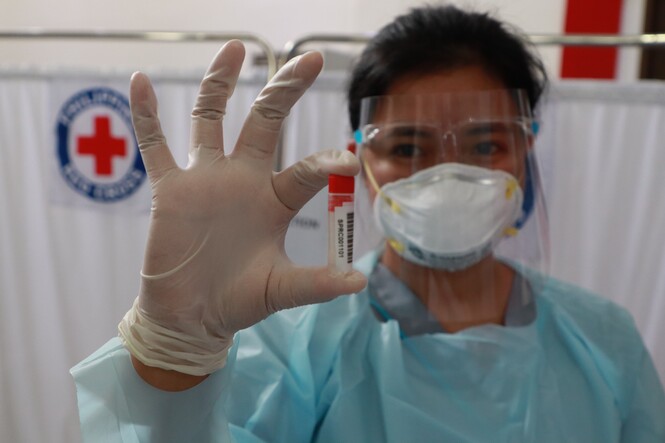
The pandemic also impacted many other aspects of society. Education has been disrupted, with schools often closed for many months. Violence against women and children has increased. Many people’s mental health has suffered and social isolation has been widespread.
The IFRC World Disasters Report 2022, released today, highlights the importance of being prepared for the next public health emergency to save lives and reduce the resulting impacts. Importantly, it finds that trust, equity and local action are an integral part in effective preparedness for public health emergencies.
Isabelle Granger, IFRC Global Lead – Disaster Law and the Auxiliary Role, says that in order to be truly prepared for the next public health emergency laws and policies must be urgently reviewed and strengthened.
“We must act now. Public health emergencies are not new - from the plague to influenza, Ebola to COVID-19, they will continue to occur and impact us all. We need to strengthen law and policy using the lessons learned from the COVID-19 pandemic to keep communities safe and save lives.
“Legal preparedness refers to having in place well-designed, well-understood and well-implemented laws, policies and plans for public heath emergencies. Importantly, legal preparedness is not just an outcome, but equally an ongoing process that entails regularly reviewing and updating laws and ensuring they are fully implemented.
“Legal frameworks have the potential to create an enabling environment for effective and timely prevention, preparedness for, response to, and recovery from public health emergencies that ensures that no-one is left behind.”
Last year, IFRC developed the Guidance on Law and Public Health Emergency Preparedness and Response to support countries to review, update and strengthen their legal frameworks, laws policies and plans.
National and subnational governments must strengthen domestic legal preparedness for public health emergencies. They can do so by reviewing their laws, policies and plans and updating them to address the weaknesses and gaps identified.
“Countries need to be prepared. Preparedness saves lives. IFRC’s Guidance on Law and Public Health Emergency Preparedness and Response can help governments to strengthen domestic laws, policies and plans for public health emergencies,” said Ms Granger.
Key recommendations from the Guidance for domestic law and policy include:
- requiring governments to provide early warning of health hazards to the general population
- enabling the participation of all stakeholders as part of a One Health, all-of-society and all-of-state approach
- establishing measures to ensure the protection of vulnerable groups during public health emergencies
- providing legal rights and exemptions for humanitarian actors responding to public health emergencies, including tax exemptions and expedited customs clearance for relief goods and equipment
- requiring laws, policies and plans relating to public health emergencies to be reviewed, both periodically and after the occurrence of a public health emergency.
Read the full Guidance here.
IFRC’s Disaster Law team stands ready to work with governments to review and update existing instruments to ensure they are fit for purpose.
If you would like to talk to IFRC Disaster Law about reviewing domestic laws, policies and plans for public health emergencies email disaster.law@ifrc.org.